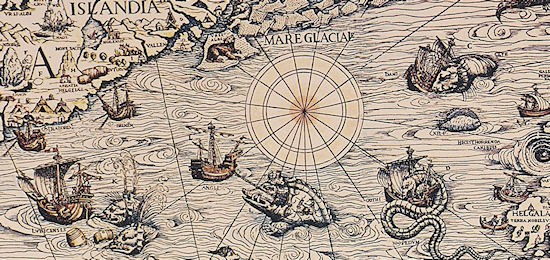Cryptozoology is the science of hidden animals. The term was coined in the 1950s by Dr. Bernard Heuvelmans, who became president of the International Society of Cryptozoology when it was formed in 1982.
The notion of hidden animals covers a range of meanings. First, there are animals that are known to science that are extremely elusive and only rarely sighted, such as giant squid. Second, there are many species of microscopic creatures that remain unknown because insufficient effort has been exerted to collect and identify them.
Third, there are many creatures that inhabit unexplored wilderness regions and the oceans that have yet to be studied because of the difficulty of gaining access to their habitats. A fourth category includes the range of fabulous creatures of folklore and mythology, many of which can be explained as mis-identifications of known species. However, there are several often reported hidden animals, such as Bigfoot and the Loch Ness monster, that continue to stir the popular imagination and yet also continue to elude quite concerted scientific exploration. Recorded sightings of the Loch Ness monster, for example, go back to the late sixth century, and have continued on a regular basis up to the present. The authenticity of several photographic and sonic images of what appears to be the monster is hotly disputed, and the world still awaits concrete verification of Nessie's existence.
Many people find it unlikely that any large creature could go unnoticed in today's world, yet the existence of several well-known animals has only been clearly demonstrated in fairly recent times. Some examples are the okapi (1901), the mountain gorilla (1902), Komodo dragons (1912), and, much more recently, the giant muntjac (also known as the barking deer) in 1994. The situation in the seas is even more astonishing. Over a four week period in 2003, marine biologists working off the northwest coast of New Zealand discovered 100 previously unknown species of fish and 300 new species of invertebrates.
Scientists estimate that there are between two and twenty million species still yet to be discovered, most in the deep oceans.




